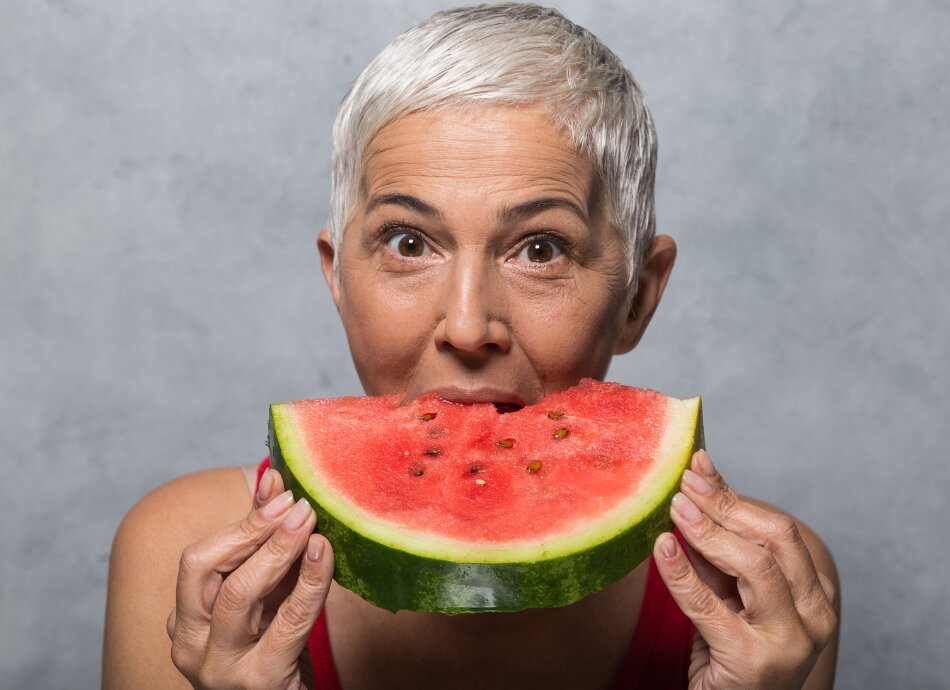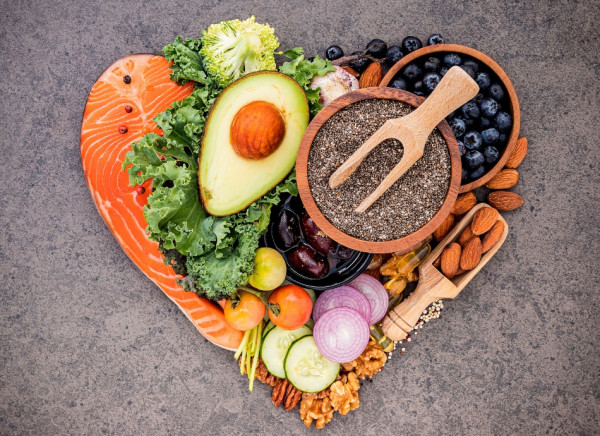You can now add Healthify as a preferred source on Google. Click here to see us when you search Google.
Eating well for brain health
Eating well for brain health
- Eating a nutrient-rich, balanced diet is important for overall health.
- Some research shows that certain dietary patterns can help with the health of your brain and may lower your risk of cognitive decline and conditions such as Alzheimer’s and dementia.
- As you age, a diet rich in plant foods such as vegetables, fruit, legumes, wholegrains and foods containing omega-3 fat can help support your brain health.
- These foods also help protect your heart and reduce your risk of high blood pressure and cholesterol. What’s good for your heart is good for your brain.

There's no denying a nutrient rich, balanced diet helps to keep you healthy.
There are certain diets that may help to keep your brain healthy, maintain cognitive function (your ability to think, learn and remember clearly) and reduce the risk of Alzheimer’s(external link). However, research in this area is still growing and is not completely clear.
We’ve covered the latest on dietary patterns and foods that can help to support your brain health. More research is needed on the benefits of specific foods and supplements.
1. Eat for a healthy heart
Your heart health and brain health are connected. Conditions that affect your heart and blood vessels, are linked to a higher risk of developing dementia later in life. These conditions include:
- high blood pressure (hypertension)
- high cholesterol
- type 2 diabetes
- obesity
- heart disease (eg, atrial fibrillation, congestive heart failure, previous heart attack).
2. Embrace the MIND diet
The MIND diet targets the health of the ageing brain and stands for ‘Mediterranean-DASH Diet Intervention for Neurodegenerative Delay’. It's a combination of the Mediterranean and DASH diets and emphasises fruits, vegetables, whole grains, legumes (beans and lentils), fish, and unsaturated fats such as olive oil. It limits red meat, processed foods, sugary drinks, and saturated fats.
The MIND diet is thought to benefit brain health because it's rich in certain nutrients (vitamins, carotenoids, flavonoids) that help to protect your brain and reduce inflammation. The same foods also benefit your heart health.

Image credit: Canva
3. Go nuts for nuts and seeds
Nuts and seeds such as almonds, walnuts, flaxseeds, and chia seeds are rich in a variety of nutrients which benefit both your heart and brain health. The MIND diet recommends 5 or more servings of nuts each week so aim for a handful most days. Good news, it includes peanuts and peanut butter!
4. Berry good choices
All fruit is beneficial to include in your diet. Berries such as blueberries, strawberries, and raspberries contain antioxidants that are anti-inflammatory and help to support brain health. The MIND diet recommends 2 to 5 servings of berries each week. Berries can be enjoyed fresh or frozen all year-round and make a great addition to a smoothies.
5. Eat the rainbow
While all colourful vegetables are part of an overall healthy diet, the MIND diet specifically recommends at least 1 serving of green leafy veges each day such as spinach, silver beet, bok choy and kale. These vegetables are nutrient dense and contain vitamins, minerals, and antioxidants that support brain health. Include them in salads, stir-fries, or serve them steamed as a side dish. Other colourful vegetables, such as red capsicum, orange carrot, and purple kūmara, offer a variety of antioxidants and vitamins that support your health, so be sure to include plenty of colours on your plate too.
6. Oily fish for a sharp mind
The MIND diet recommends fish and seafood at least once a week. Oily fish such as salmon, tuna, sardines, and mackerel are higher in omega-3 fatty acids which have been shown to reduce the risk of cognitive decline, Alzheimer’s and dementia.
Omega-3 fats make up 20% of your brain's weight. Canned or plain frozen fish are cheap and convenient. You can also find omega-3s in chia seeds, walnuts, flaxseeds and flaxseed oil.
7. Whole grains over refined ones
Choose brown rice, quinoa, whole grain bread, and oats instead of white bread, rice and pasta. Whole grains provide sustained energy for your brain and body. Whole grains are more nutrient-dense and provide your body with more dietary fibre, vitamins (B vitamins) and minerals (zinc, magnesium) than refined carbohydrate foods.
8. Switch to olive oil
Olive oil may support brain health through its rich monounsaturated fatty acid content. It also contains vitamin E and polyphenols that are antioxidants and anti-inflammatory. The MIND diet recommends olive oil as a main cooking oil, and this is a key feature of the Mediterranean diet. Read more about polyphenols(external link).
9. Dial up the beans
Beans are a key part of a plant-rich diet and include lentils, chickpeas, green beans, kidney beans and edamame beans. The MIND diet recommends beans in at least 4 meals per week. Beans can be added to a wide range of dishes and these meals don’t have to be vegan or vegetarian.
10. Hydrate for a healthy brain
Water is essential for all bodily functions, including day-to-day brain function. As a guide, adults need about 8 to 10 cups of fluid each day (2 to 2.5 litres) which includes water and other fluids such as milk and tea. Increase your daily water intake by carrying a water bottle with you or pouring a glass of water with each meal.
11. Limit sugary drinks and highly processed foods
Foods high in saturated and trans fats, sugar (including sugary drinks) and salt don’t support optimal brain health and should be limited.
These include:
- butter and cream
- fatty and processed meats
- palm oil and coconut oil
- biscuits, cakes and pastries
- deep-fried foods
- sugary drinks
- highly processed foods that contain salt, sugar or saturated fat.
Choose whole foods over sugary, processed snacks and go for plain water and unsweetened drinks when you’re thirsty.
12. Other polyphenol rich foods
Along with the foods listed above, foods such as coffee, dark chocolate and cocoa powder are a source of plant compounds called polyphenols which are antioxidants and have anti-inflammatory properties which may benefit your gut, skin, heart and brain health. But like most things, moderation is key.
Alzheimer’s New Zealand recommends a range of ways to improve the health of your brain as your age and reduce your risk of Alzheimer’s. These include keeping active, checking your hearing, looking after your heart, staying mentally active and keeping socially connected. Read more about things to do to reduce your risk of dementia.

Image credit: Canva
Supplements (such as B vitamins, vitamin E, fish oil, ginkgo biloba and curcumin) may seem like an appealing way to got in extra nutrition. However there currently isn't enough evidence to recommend any particular dietary supplements for preventing cognitive decline.
It's far better to eat whole foods to get a wide range of the micronutrients needed for overall health and brain health. Supplements are expensive and it's better to spend your money on foods such as vegetables, fruit and other plant foods which contain anti-inflammatory and antioxidant compounds that may help to prevent and treat cognitive decline.
Some people may have barriers to regularly eating nutrient-rich healthy food (such as cost, dentures, and lack of facilities to prepare food). Your healthcare provider may recommend a supplement if you are at risk of poor nutrition or a blood test shows that you are deficient in a particular nutrient.
Reducing the risk(external link) Alzheimer's New Zealand
Self care – reduce the risk of dementia(external link) Dementia New Zealand
October brain health tip – diet(external link) New Zealand Dementia Foundation
Eating healthy and powering your brain(external link) Neurological Foundation, NZ
References
- Melzer TM, Manosso LM, Yau SY, et al. In pursuit of healthy aging – effects of nutrition on brain function(external link) Int J Mol Sci. 2021 May 10;22(9):5026.
- Townsend RF, Logan D, O'Neill RF, et al. Whole dietary patterns, cognitive decline and cognitive disorders – a systematic review of prospective and intervention studies (external link)Nutrients 2023 Jan 9;15(2):333
- Kheirouri S, Alizadeh M. MIND diet and cognitive performance in older adults – a systematic review(external link) Crit Rev Food Sci Nutr. 2022;62(29):8059–8077
- Sawyer RP, Blair J, Shatz R, et al. Association of adherence to a mind-style diet with the risk of cognitive impairment and decline(external link)
in the REGARDS cohort(external link) Neurology 2024 Oct 22;103(8):e209817 - Diet review – MIND diet(external link) The Nutrition Source, Harvard School of Public Health, US, 2023
- Cognitive health and older adults(external link) National Institute on Aging, NIH, US, 2024
- Tessier A-J, Cortese M, Yuan C. Consumption of olive oil and diet quality and risk of dementia-related death(external link)
Credits: Healthify editorial team. Healthify is brought to you by Health Navigator Charitable Trust.
Reviewed by: Lily Henderson, Registered Dietitian
Last reviewed:


